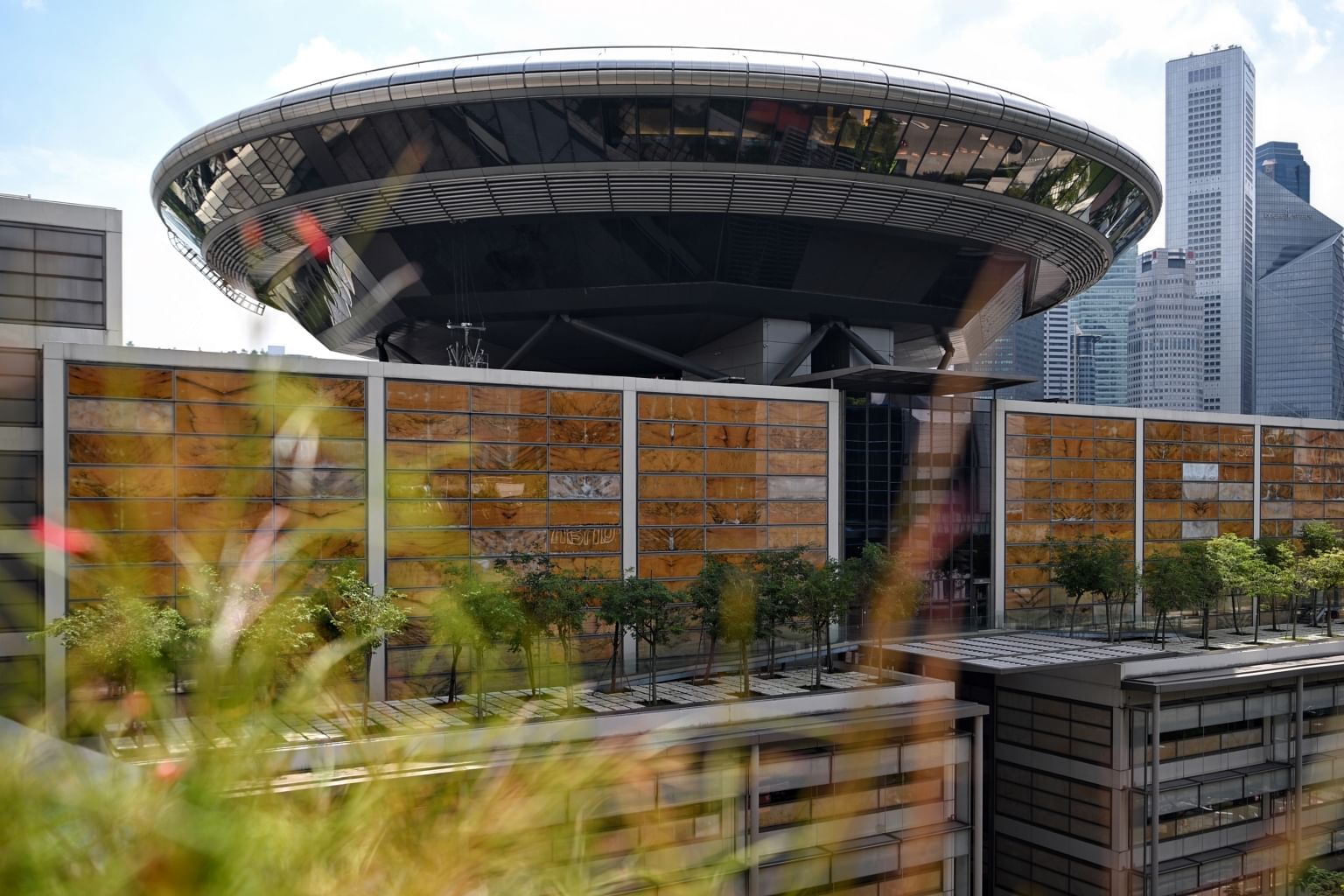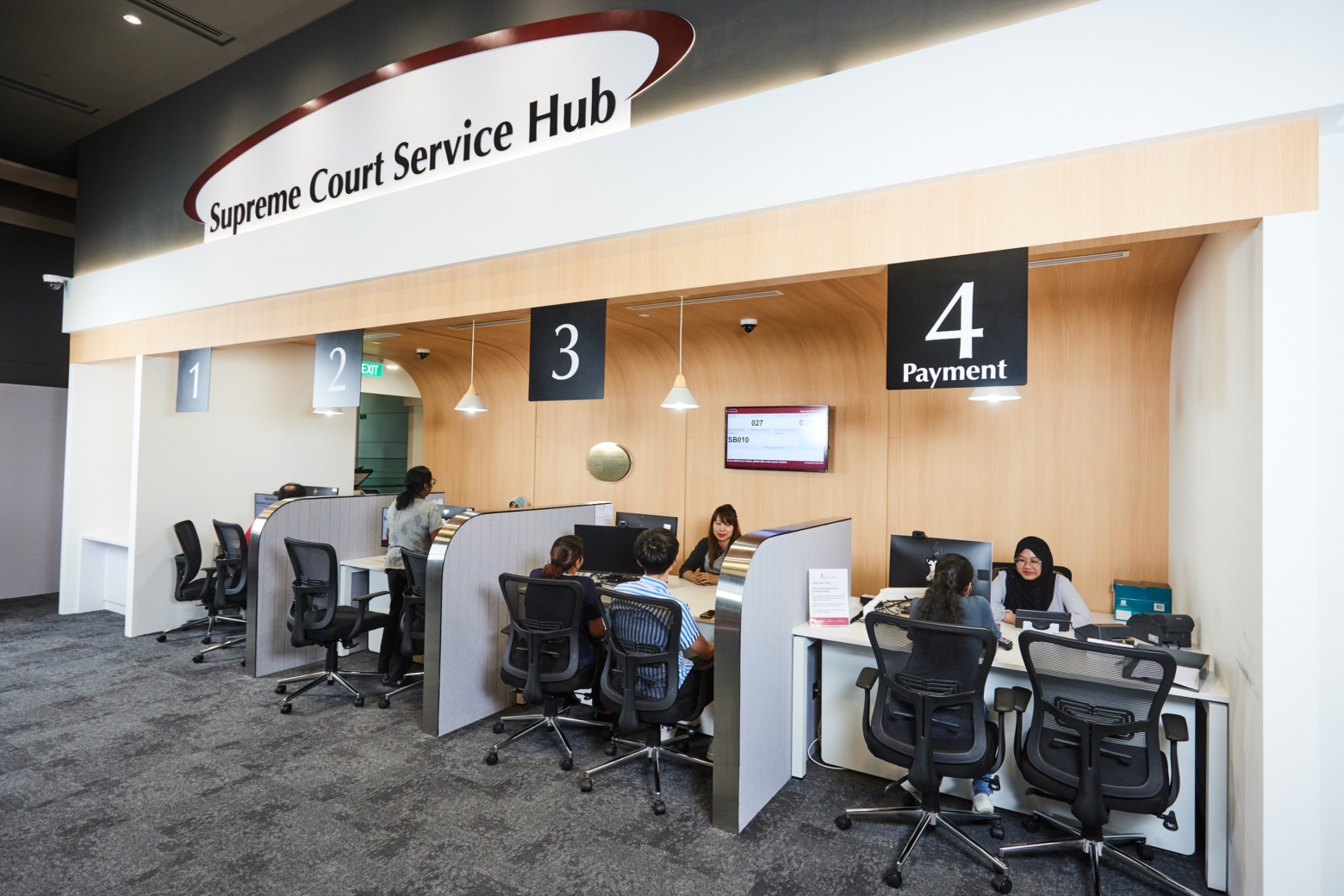BRANDED CONTENT
How Singapore Courts are evolving and promoting access to justice for all
As equality, truth and trust are threatened, Singapore’s judiciary is reimagining its role as a provider of justice

Singapore Courts are reimagining their systems, as they adapt their role to meet the needs of a changing world while keeping to their core purpose as the arbiter of society.
ST PHOTO: KUA CHEE SIONG
Imagine: You find yourself entangled in a significant life event, perhaps a daunting lawsuit, a painful divorce, or the complexities of bankruptcy.
You don’t understand the legal terms, and navigating court procedures can be daunting. So what do you do?
The answer lies in a reimagination of court processes to simplify legal complexities for the layman.
On the Singapore Courts’ (SG Courts) website, a guided questionnaire helps you prepare your case, including self-help guides and a compilation of court rules – written in plain English – on how to navigate proceedings.
An automated digital tool helps prepare your documents. If you run into an issue, a service hub can help with in-person assistance.
On top of that, a simplified court process will save time and money.
This is how SG Courts are reimagining their systems, as they adapt their role to meet the needs of a changing world while keeping to their core purpose as the arbiter of society.
“Our paradigms of justice will need to shift,” Chief Justice Sundaresh Menon said, highlighting these transformations at an SG Courts event last month. Titled “Conversations with the Community”, the engagement series brings together leaders from the judiciary, academia and legal sectors to forge multi-sector collaboration.

Besides increased public outreach, SG Courts have also launched a slate of initiatives to spearhead their focus on access to justice.
This includes a digital tool that helps users prepare documents for bankruptcy applications and criminal mitigation pleas; a series of online self-help procedural guides for civil, family and criminal proceedings; and one-stop service hubs at the Supreme Court and the State Courts, which offer self-help terminals where self-represented people can check on the status of their hearings and obtain assistance on court processes.
A new paradigm
The erosion of trust from global developments influencing Singapore, including rising misinformation, make such initiatives timely and necessary.
It is why SG Courts are seeking to reach out to the community and provide more information on court processes and judicial decisions in an easily accessible way.
Another reason is the uptick in the number of court users who are self-represented – a trend that may increase with greater socioeconomic inequality, which can lead to legal costs becoming more prohibitive.
How the courts are changing
- Harnessing AI: Need to file a claim at the Small Claims Tribunals? An artificial intelligence (AI) program will be able to guide you through the process in the future.
- Simplified language: Terms such as "ex parte" and "leave of court" will be replaced with "without notice" and "permission of the court" respectively at the Family Justice Courts, so they can be easily understood by the public.
Lay court users are an “increasingly important reality for judiciaries around the world”, the Chief Justice said. Yet they face significant difficulties navigating legal systems designed with lawyers and judges in mind.
“The courts must therefore take steps to ensure, as far as possible, that would-be litigants are not shut out on account of the cost and other obstacles faced in navigating the justice system.”
The role of the courts has long been, and will continue to be, to exercise judgment, he added.
How do courts help safeguard society? Watch the video below to hear from Chief Justice Sundaresh Menon on the role that courts play.
“But our role cannot be limited to a purely adjudicative setting. To effectively navigate the challenges that confront our societies, the courts – as the custodians and principal operators of our justice systems – have a special responsibility for protecting the core values of those systems and ensuring that robust mechanisms are in place for the delivery of justice to all.”
In doing so, the courts secure and maintain public trust and uphold public confidence in the rule of law.
The courts’ true mission is to ensure the fair and efficient administration of justice, said the Chief Justice. “And this, I suggest, is ultimately the most important way in which our courts can safeguard our society.”
Here's a deeper look at the role of the judiciary in today's changing world.
Balancing the scales of justice
SG Courts represent the Singapore judiciary, which is made up of the Supreme Court, State Courts and Family Justice Courts.

How they work
The courts’ two roles in safeguarding society
An impartial judge
The courts’ role is to be an impartial judge. They do so by:
- Saying what the law is: The courts apply the law as it is, without fear or favour, even if this might lead to outcomes that do not align with prevailing social norms and policies.
- Exercising judicial modesty: In Singapore, the powers of the state are separated into three branches of equal importance that can check each other: Parliament makes laws, government ministries execute them, and the courts enforce them by interpreting laws fairly.
The courts are careful not to overstep their role; they are dedicated to upholding the constitutionality and legality of government actions.
Access to justice for all
The courts’ mission is to ensure the fair and efficient administration of justice.
Beyond their traditional role as an impartial judge, the courts also have the responsibility of maintaining a system of justice that is accessible and meets the needs of all.

What we face
The challenge of what has been referred to as a “perfect long storm”
Greater inequality
If income inequality rises in Singapore, one challenge is to ensure that everyone, including those without lawyers, has access to justice and is not shut out due to cost and other barriers.
Truth decay
As the spread of misinformation continues, reduced trust in once-respected sources of factual information threatens the courts, which are rooted in truth to achieve justice.
Low trust in Governments around the world
Governments are now less trusted than businesses, according to the 2023 Edelman Trust Barometer. This affects the legitimacy of the courts, which hinges on public trust in their ability to ensure other public institutions act legally.

How they will serve
To safeguard society and ensure justice for all
Assist those without lawyers
The courts aim to help everyone, especially the rising number of people without lawyers, access justice. They are doing so through:
- Simplified processes which help people, especially those pursuing small claims, save time and money. These processes, designed to make court procedures easier to navigate, are compiled in the Rules of Court 2021, which avoids using technical terms.
- Self-help guides available on SG Courts’ website, where users can access information on legal proceedings. The courts will also be launching a questionnaire to help users locate relevant information based on the key features of their situation.
- Improved services, such as digital tools that help prepare documents for bankruptcy or divorce, or service hubs for in-person assistance.

Increase outreach
The courts are improving outreach efforts to promote awareness of what they do. For example, the Supreme Court publishes case summaries of significant decisions on its website and social media channels to engage a wider audience.
Part of this effort is the “Conversations with the Community” series of events, launched last month, to foster better understanding of how the courts work.
Reimagine justice
By redefining what justice means, the courts seek to change the hostile culture of litigation. For example, the Family Justice Courts promote therapeutic justice, to help families repair broken relationships and move on, instead of settling old scores.
The courts are also encouraging alternative solutions like mediation. Mediation encourages people to speak up about concerns and shared interests, instead of focusing on assigning blame or crafting legal arguments.
In partnership with SG Courts


